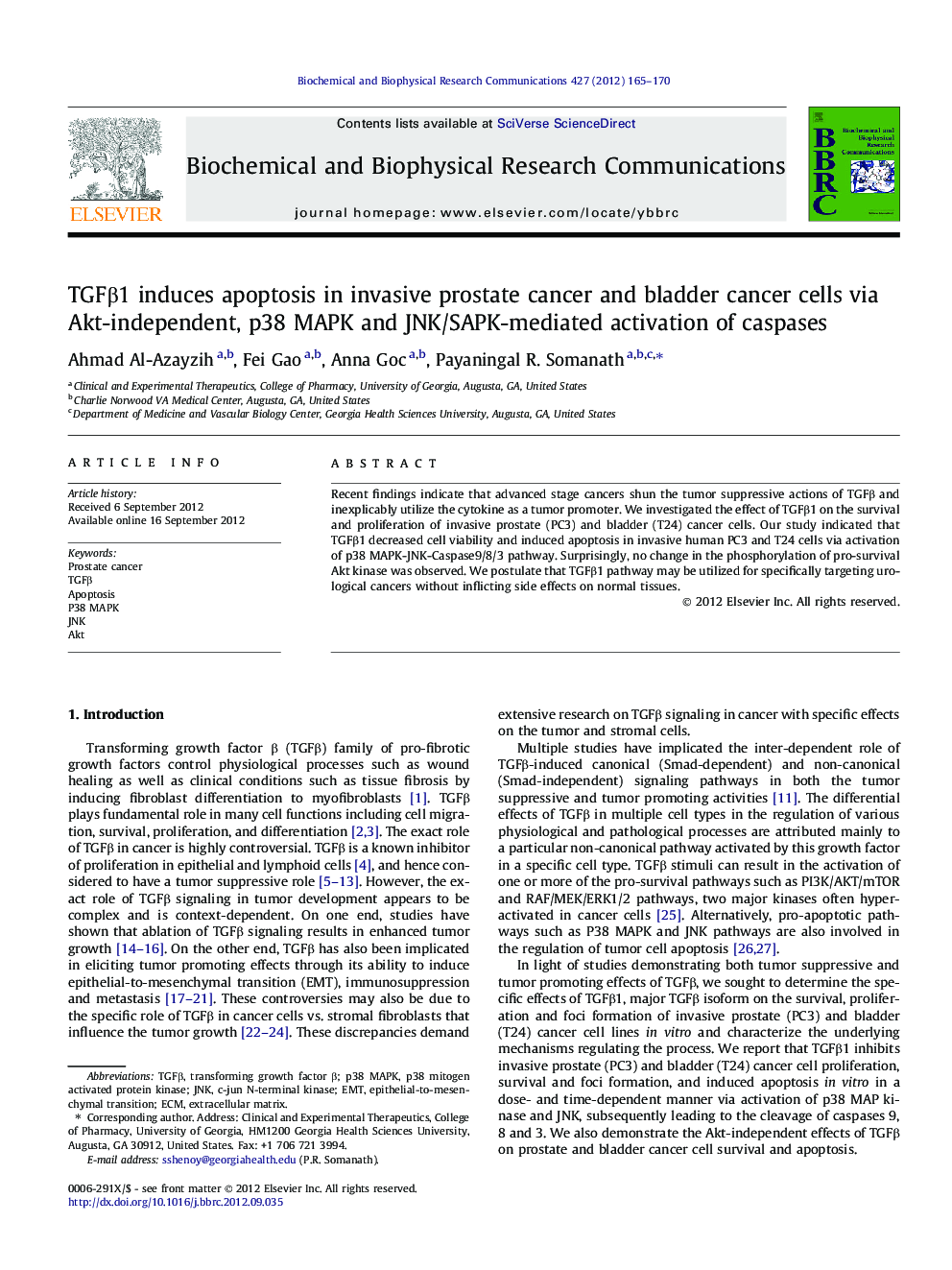| Article ID | Journal | Published Year | Pages | File Type |
|---|---|---|---|---|
| 1929494 | Biochemical and Biophysical Research Communications | 2012 | 6 Pages |
Recent findings indicate that advanced stage cancers shun the tumor suppressive actions of TGFβ and inexplicably utilize the cytokine as a tumor promoter. We investigated the effect of TGFβ1 on the survival and proliferation of invasive prostate (PC3) and bladder (T24) cancer cells. Our study indicated that TGFβ1 decreased cell viability and induced apoptosis in invasive human PC3 and T24 cells via activation of p38 MAPK-JNK-Caspase9/8/3 pathway. Surprisingly, no change in the phosphorylation of pro-survival Akt kinase was observed. We postulate that TGFβ1 pathway may be utilized for specifically targeting urological cancers without inflicting side effects on normal tissues.
► TGFβ induced apoptosis in invasive prostate cancer and bladder cancer cells. ► TGFβ inhibited prostate/bladder cancer cell proliferation and colony/foci formation. ► TGFβ induced prostate/bladder cancer cell apoptosis independent of Akt inhibition. ► TGFβ inhibited ERK1/2 phosphorylation in prostate/bladder cancer cells. ► TGFβ induced p38 MAPK and JNK-mediated activation of caspases-9, -8 and -3.
